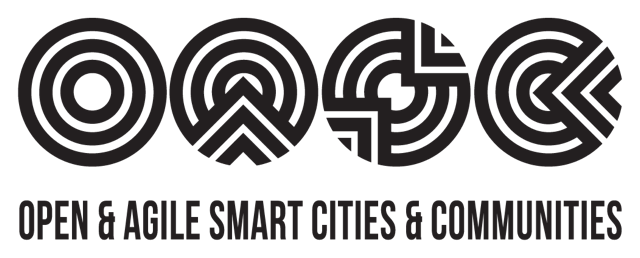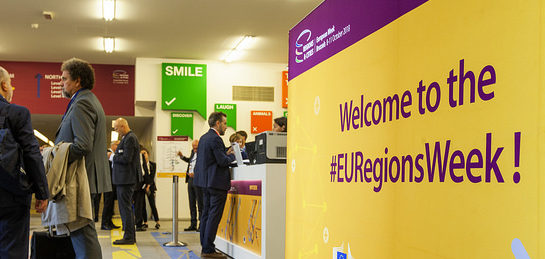Digitalisation affects every city and community – buzzing capitals as much as smaller municipalities. OASC, together with SmartUp BSR and with support from SynchroniCity, organised a workshop at this year’s EU Week of Regions and Cities to discuss how cities, regions and the European Union drive the digital and economic transition. The main takeaway of the session: We must work ever more closely together, share experiences, and involve citizens to de-risk investments in smart cities and communities.
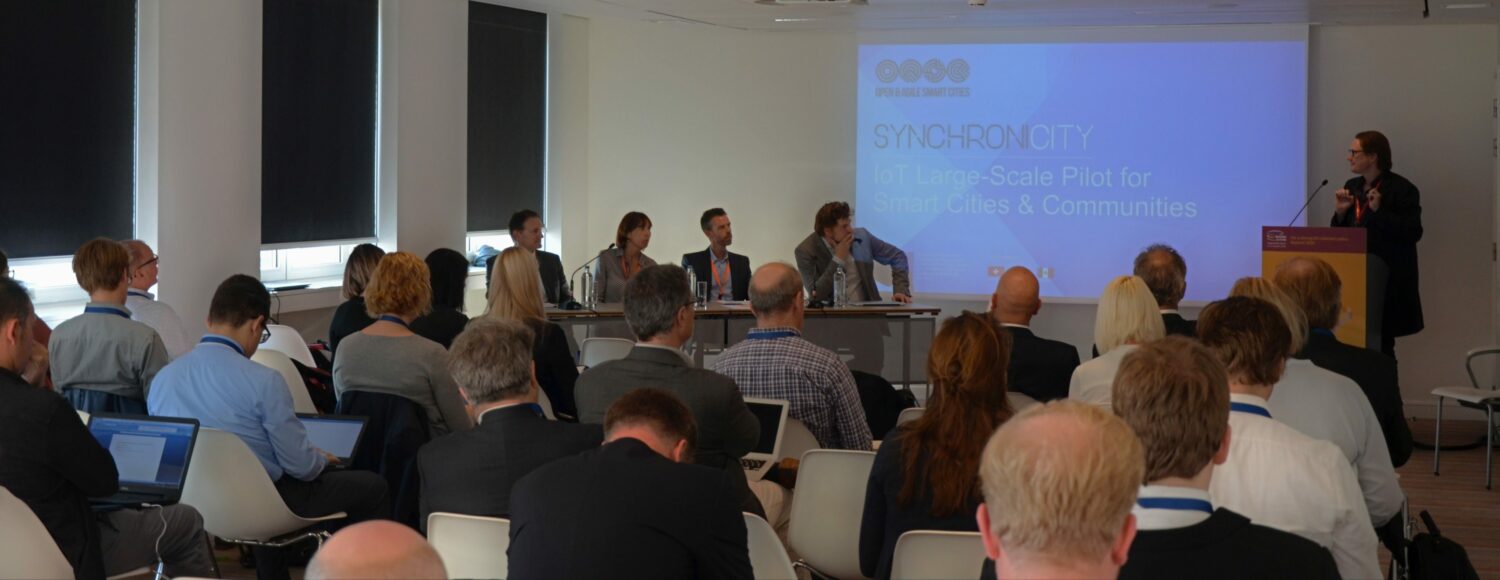
The scene for the workshop was set by the cities: Frédérique Macarez, Mayor of Saint-Quentin, opened the first panel to discuss how cities are making the change happen. Located in the north of France, Saint-Quentin’s goal is to drive the digital transformation with a bottom-up approach. “The exchange with citizens is crucial. Therefore we have created the ‘L’espace citoyen’ – the citizen space. It is one way to bring citizens together to share their ideas and build projects”, Mayor Macarez said.
While Saint Quentin is a medium-sized city with 56.000 inhabitants, it is active on the international level. The city is member of Open & Agile Smart Cities, acts as a local digital innovation hub, and cooperates with the telecoms association TM Forum to define the City as a Platform.
GitHub for Policy Exchange
Even more active is the Dutch main metropolitan area: As one of the frontrunners when it comes to digitalisation, Amsterdam takes part in numerous innovation projects to drive the digital and economic transition of the city further. Aik van Eemeren, Innovation Manager with Amsterdam’s Chief Technology Officer, highlighted the importance of a common ground on both national and European level.
Equally important for Amsterdam is working with open source technology, as the city does in the Interreg project SCORE, and a guiding framework based on ethical considerations. Here the city cooperates with Barcelona and others in the DECODE project to drive the inclusion of citizens and their right to privacy, forming the basis of the Digital Rights Alliance, to be launched next week in London.
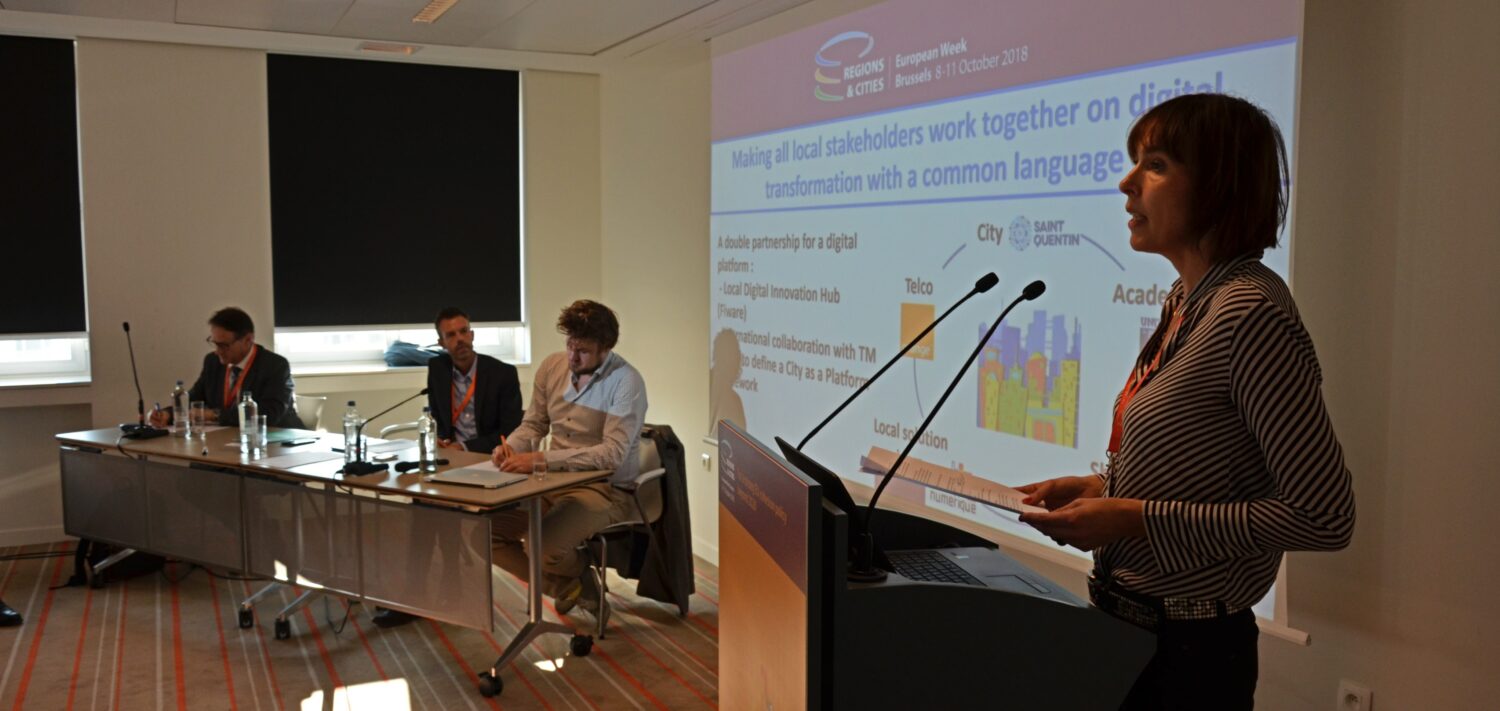
Frédérique Macarez, Mayor of Saint Quentin
Wim De Kinderen, International Project Manager at Brainport Eindhoven and Vice-President of ENoLL, the European Network of Living Labs, also focused on including citizens in the digital transition to make it successful: “Cities are taking the lead in the digital transition and the cities’ people are the best ambassadors to scale up, promote and support the work you do in the city.”
De Kinderen also stressed the importance of collaboration on multiple levels: between cities, between organisations and initiatives such as OASC, ENoLL, the EU Urban Agenda, EUROCITIES and also to include researchers in the dialogue.
Eindhoven is one of eight OASC member cities participating in the SynchroniCity project. This example of strong cooperation between 38 cities, NGOs, research organisations, and businesses aims at creating a global market based on a common technical ground, where cities and businesses develop digital services to grow local economies based on global dynamics.
Standards are here to support
Benefits of the digital transition are obvious and often highlighted, but the challenges cities and communities are facing are complex. This is the moment when standards enter the stage. Bernard Gindroz, who chairs the ISO Technical Committee for Sustainable Cities and Communities (ISO/TC 268), said that sustainable city development results from strong political engagement and a cross sectoral approach. But most importantly, cities have to share their success stories.
Smart city standards – for management as well as for technical aspects – already exist to support cities in managing the sustained development, replicating digital solutions and to find new and sustainable business models. But not only that, standards help de-risking investment in smart cities and communities.
Driving the change
The second panel discussed the support from a high-level political perspective: Markku Markkula, First Vice-President of the European Committee of the Regions, opened the discussion stating that “benchlearning” is the new benchmarking. He highlighted the role of the Committee of the Regions by putting people and regions at the heart of policy-making and projects such as Smart-Up BSR.
Living the ‘Benchlearning’ approach, Smart-Up BSR allows regions to get hands-on experience and build solutions to regional challenges in so-called innovation camps. This approach mobilises existing knowledge and showcases best practices in the area of smart specialisation.
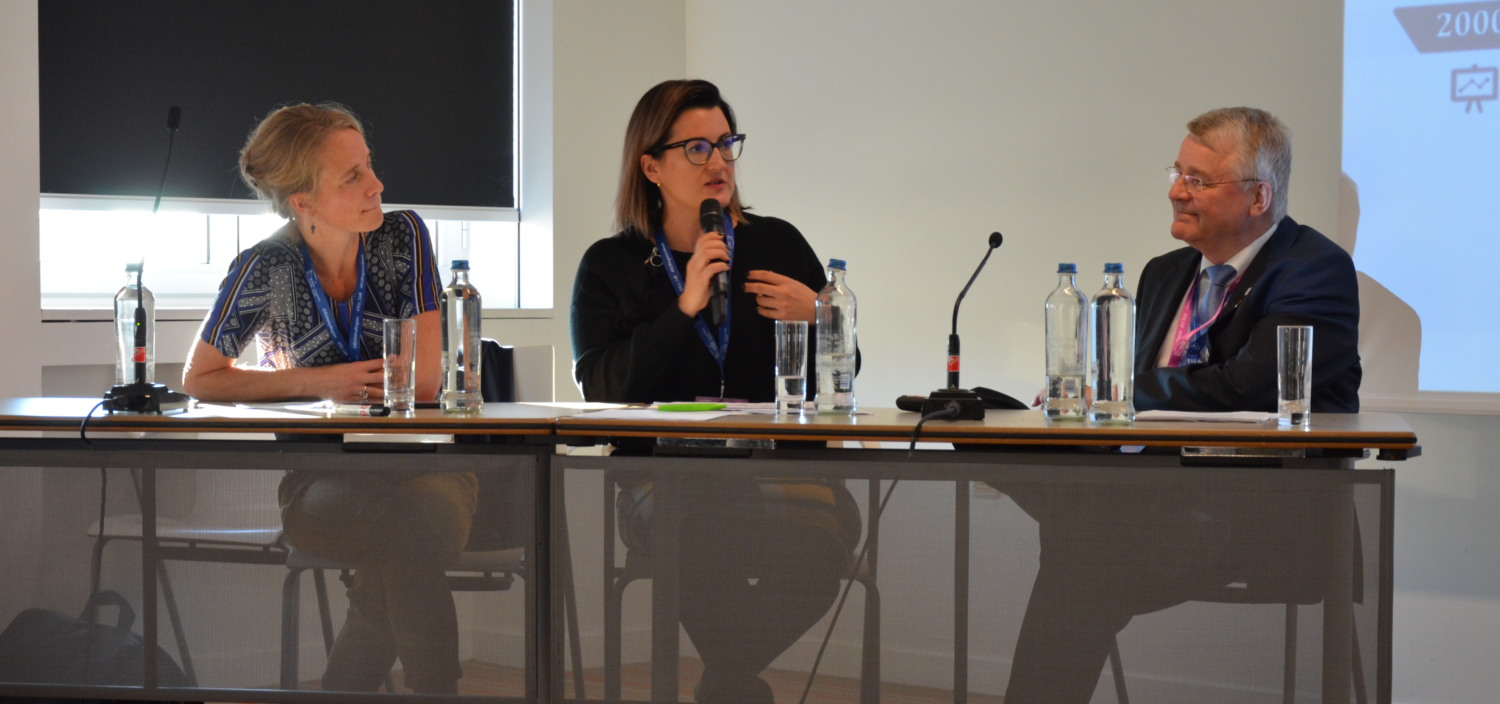
From left to right: Dorthe Nielsen, Karolina Lipinska, and Markku Markkula
Karolina Lipinska reinforced Markkula’s stand on benchlearning. As Deputy Director of the Department of Economic Development, she represented Poland’s Pomerskie Region – with the OASC member city Gdansk at its core. The region is part of Smart-Up BSR and benefits from the benchlearning approach. The region is also active in promoting and testing digital services. As part of Smart-Up BSR they share their experiences from these projects with the community.
Benchlearning is key
Concluding the session, Dorthe Nielsen, Policy Director at EUROCITIES, presented the approach of the network. As an association representing the largest cities in Europe, Nielsen shared the importance of knowledge sharing by bringing the communities together. This happens within EUROCITIES in the so-called Knowledge Society Forum (KSF), focusing, among others, on data, digital citizenship and standards and interoperability.
Martin Brynskov, Chair of OASC and Coordinator of SynchroniCity, and Taina Tukiainen, Professor at Aalto Unversity and Smart-Up BSR, summarised that the main goal of EU policies must be to de-risk investment in smart cities and communities. This is also where standards and interoperability of systems and data come in. Brynskov said: “ A digital transition that is linked to sustainable economic development can only work if we de-risk investment in cities and communities. This can be achieved by innovation and procurement based on standards.”
Open & Agile Smart Cities (OASC) is a non-profit, international smart city network connecting currently 117 cities from 24 countries and regions. Together we are creating and shaping the nascent global smart city data and services market. OASC is already today at the forefront of tomorrow’s standards for city data, services, and technology – and we work based on city needs with support from industry. Unlike any other city network, OASC is driven by implementation and focused on open platforms and citizen engagement.
SynchroniCity is the European IoT Large-Scale Pilot for Smart Cities & Communities, funded with 15m€ from the European Horizon 2020 innovation programme, and it is part of the 104m€ IoT Large Scale Pilot (LSP) Programme. The initiative drives the very concrete creation of a global market where cities and businesses develop shared digital services to improve the lives of citizens and grow local economies. The SynchroniCity IoT Large-Scale Pilot for smart cities is built on the belief that creating a simplified, open and agile digital market across borders will help cities and its citizens get better services. It will also help businesses of all sizes transparently compete and easily scale their products and solutions. All this together will enable the identification and development of agile city standards that will allow to establish an effective marketplace for all.
The Interreg project Smart-Up BSR (Baltic Sea Region) helps regions in developing their competitive niches and updating their research and innovation strategies for smart specialisation (RIS3). The Smart-Up Community invites to dig deeper into smart specialisation to discover how this place-based approach can identify the strategic areas for intervention: by analyzing the strengths and potentials of the economy and through entrepreneurial discovery process with wide stakeholder involvement. It is outward-looking and embraces a broad view of innovation supported by effective monitoring mechanisms.
